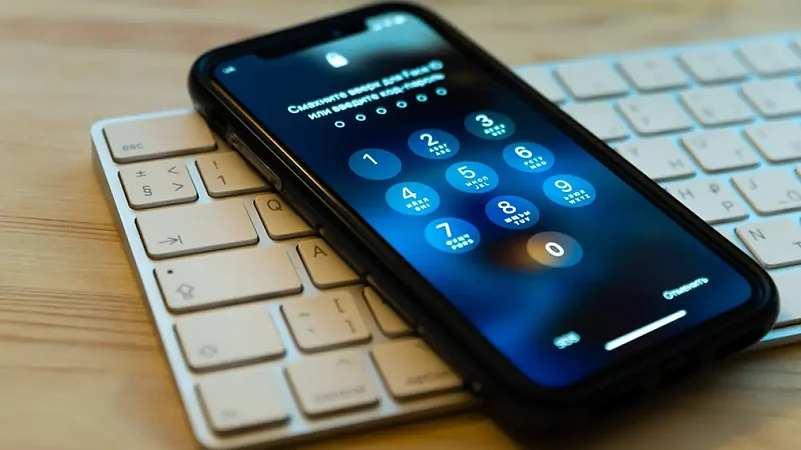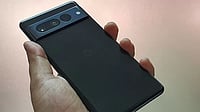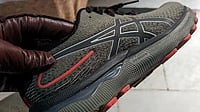Around this time last year, an investigation by an international media consortium revealed that several thousand phones were targeted by spyware called Pegasus created by NSO Group, an Israeli software company.
The list included 300 devices in India and prominent politicians from the Opposition, judges, several journalists, and activists were the key targets.
It further came to light that the spyware is only sold to governments. That’s when the matter reached Indian Parliament where the Opposition camp said the use of spyware was an attack on their freedom and privacy and demanded a probe into the matter.
The government, as expected, denied the allegations of snooping.
Cut to this year, another spyware called Hermit has emerged which is reportedly even more powerful than Pegasus. It can record audio and make and redirect phone calls and collect data including call logs, contacts, photos, device location, and SMS messages.
In times like this, it has been a tough time for smartphone makers to convince users that their devices and data are safe.
However, Apple has been an exception. The Cupertino-based tech giant is turning the sensitive issue of privacy into its own advantage with one advertisement at a time.
Apple has positioned itself as the most privacy-sensitive big technology company with new iPhone features that restrict app access to personal data.
The latest feature we know of is the ‘Lockdown Mode’ that is aimed at stricter privacy and more control for a user.
Let’s understand if this mode will make the iPhones the safest and less prone to attacks.
What Is Apple’s ‘Lockdown Mode’?
Apple is bringing a major change in iPhones to make it harder for spyware to target and hack users’ data. This will block the functionalities of the phone so that the hackers don’t get access to the user’s data or exploit other functions of the phone. This includes blocking message attachments, incoming invitations, and service requests on FaceTime, and blocking wired connections of an iPhone with a computer, among others.
Also, attempts to connect a wired accessory or network to an iPhone will be blocked.
This, however, is an optional and multi-layered set of options for those who want to add an extra layer of protection to their phone.
Will The Feature Be Available For Everyone?
Apple says this mode (option or setting), will be available to a “very small number of users who face grave, targeted threats to their digital security”.
“Lockdown Mode offers an extreme, optional level of security for the very few users who, because of who they are or what they do, maybe personally targeted by some of the most sophisticated digital threats, such as those from NSO Group and other private companies developing state-sponsored mercenary spyware,” the company says in a statement.
So, in all likelihood, the feature will available to those who’ve been previously targeted by spyware and malware.
When Can You Use Lockdown Mode On iPhones?
The Lockdown Mode is not available on iOS, iPadOS or macOS right now. However, the feature will be available once Apple starts rolling out its new software in September along with the iPhone 14 series.
Is There A Need To Activate Lockdown Mode? Weren’t Apple’s devices secure anyway?
It’s true that Apple has advertised privacy as a key feature in all its devices in the past few years but in the aftermath of the Pegasus and Hermit spyware attack on several iPhones, the company has swung into action once again to make its devices more secure against such attacks.
What does All Protections Lockdown Mode offer?
Messages: Most message attachment types other than images are blocked. Some features, like link previews, are disabled.
Web browsing: Certain complex web technologies, like just-in-time (JIT) JavaScript compilation, are disabled unless the user excludes a trusted site from Lockdown Mode.
Apple services: Incoming invitations and service requests, including FaceTime calls, are blocked if the user has not previously sent the initiator a call or request.
Wired connections with a computer or accessory are blocked when iPhone is locked.
Configuration profiles cannot be installed, and the device cannot enrol into mobile device management (MDM), while Lockdown Mode is turned on.
Will iPhone Be The Safest Device To Use With The Lockdown Mode?
Lockdown mode is a big deal at a time when our devices are vulnerable to threats from bad actors. This will compel Google to follow suit with its Android OS, and it wouldn’t be surprising for other companies to also fall in line.
So yes, it could be said that with such features on your phone, it’s safer and in case of any emergency, journalists, activists, and other personalities may find it really helps to protect valuable data from being compromised.
Though Android devices are also catching up, for example, you can check which apps are using the phone’s microphone among other things, they so far don’t offer the privacy features that iPhones are known for.
So, iPhones may be lacking in offering any fancy features that Androids do these days, but Apple’s marketing campaign over privacy seems to work in favour of the company. The new spyware (Hermit) may test Apple’s privacy claim but the Lockdown Mode will pull people concerned about their privacy.
Apple’s Reaction after iPhones are in question for privacy
Last year, Apple sued the NSO group after the Pegasus spyware that was used as a weapon for state-sponsored surveillance, affected some of the iPhones. The company also fixed the vulnerability that the spyware could be installed on people’s iPhones.
Apple has had to bear the backlash earlier for its position on privacy and security. In 2020, the FBI asked the company for data on two iPhones that belonged to the gunman in a shooting incident.
However, the company refused to do so. Apple believed that creating a back door into the phone would weaken its security and could be used by malicious actors.
In September 2015, Apple released its new operating system, iOS 9, which it billed as having enhanced security to “protect customer data.”
In February 2016, the Justice Department obtained a court order directing Apple to write software to bypass the security feature. Apple said it would fight the order saying the government was seeking to force the company to break its own security, which could pose a threat to customer privacy.
But it’s not that the company doesn’t entertain requests from enforcement authorities, Apple's transparency report says it has responded to over 125,000 such government requests for information.
Later that year, Apple's Senior Director of Global Privacy, Jane Horvath, said "end-to-end encryption is critically important to the services we rely on." With regard to fighting terrorism, she continued that "building a backdoor to encryption is not the way we're going to solve those issues."































